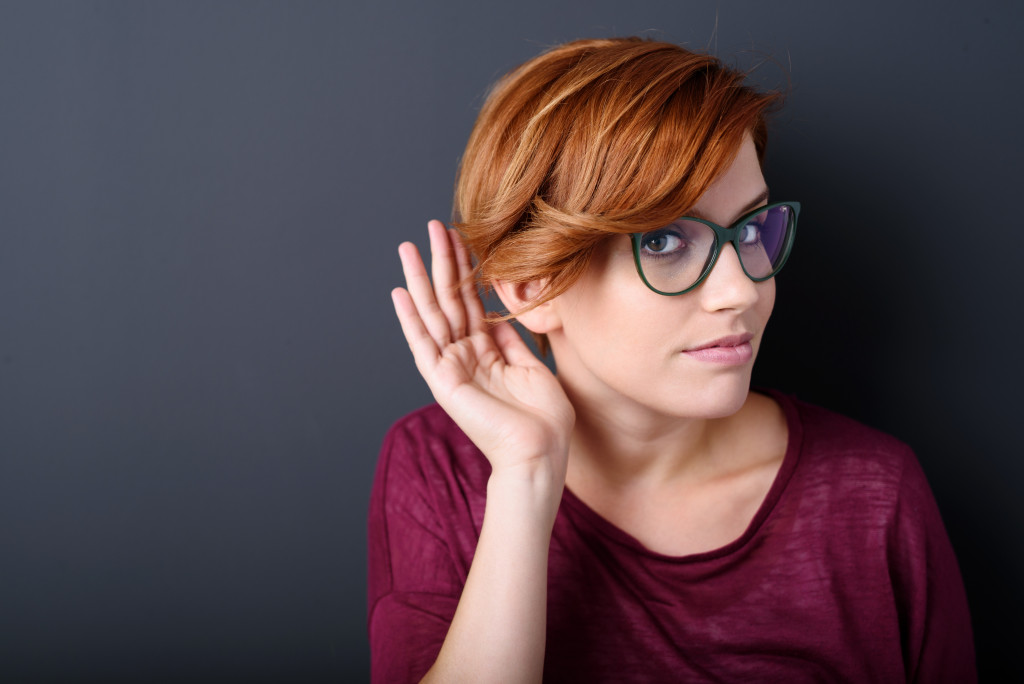- Hearing loss is a common problem, often caused by exposure to loud noise over time.
- Having a regular audiologist check-up can help diagnose potential hearing issues early on.
- Hearing loss can lead to cognitive decline, social isolation, and depression when left untreated.
- Protect your hearing by using hearing protection devices and creating a hearing-friendly environment.
- Maintain good auditory hygiene by taking regular hearing check-ups, using proper ear wax removal techniques, and adopting healthy habits.
Hearing is one of the most important senses and plays a crucial role in daily life. Communication, learning, and enjoyment of music and the environment would be impossible without it.
Unfortunately, auditory health is often overlooked or taken for granted until it worsens, leading to more permanent damage. With that said, taking charge of your auditory well-being is vital for your hearing health and overall well-being.
Hearing loss is a common problem that affects people of all ages. According to the National Institute on Deafness and Other Communication Disorders, approximately 15% of American adults (37.5 million) aged 18 and over report some trouble hearing.
Noise-induced hearing loss is one of the most preventable forms of hearing impairment, often caused by exposure to loud noises over time. The good news is that you can take steps to protect your hearing and prevent hearing loss from occurring.
Understanding Auditory Health
Various factors, including age, genetics, exposure to loud noise, and illnesses, can cause hearing loss. The human ear is a complex organ; any malfunctioning part can cause hearing impairments.
Regular check-ups with an audiologist can help diagnose any potential hearing problems early, providing the opportunity for prompt treatment.
Common Causes of Hearing Loss and Damage
Exposure to loud noise is among the leading causes of hearing loss and damage. Constant exposure to loud music, noisy workplaces, or using earbuds at high volumes can cause cumulative damage to your auditory system.
Aging is another common cause of hearing loss, with older adults struggling to hear high-pitched sounds or distinguish between consonants.
The Impact of Hearing on Overall Well-Being
Hearing loss can affect your overall well-being, increasing the risk of cognitive decline, social isolation, and depression. Those with hearing loss often feel embarrassed or ashamed, leading to avoiding social, work, or family activities.
Addressing hearing loss early can help prevent such adverse effects and improve the overall quality of life.
Protecting Your Sense of Hearing
Protecting your sense of hearing is crucial, especially if you are regularly exposed to loud noises. Using hearing protection devices like earplugs or noise-canceling headphones can reduce the risk of noise-induced hearing loss. Additionally, creating a hearing-friendly environment can help prevent damage to your auditory system.
Preventing Noise-Induced Hearing Loss
Preventing noise-induced hearing loss can be achieved through taking simple preventive measures, such as reducing the volume of music or other sounds around you, taking regular breaks in noisy environments, and avoiding noisy activities frequently. It’s all about balancing enjoying the world around you and maximizing auditory health.
Creating a Hearing-Friendly Environment
Creating an environment that is friendly or safer for your sense of hearing involves taking proactive measures that minimize exposure to loud sounds, maintaining good hearing hygiene, and modifying areas to be more hearing-friendly.
Using Hearing Protection Devices
Hearing protection devices can help reduce the risk of noise-induced hearing loss, especially in noisy environments. They effectively reduce the risk of hearing impairment such as earplugs, earmuffs, or noise-canceling headphones. Hearing protection devices are wise to prevent damage and maintain good auditory hygiene.

Healthy Habits for Good Hearing
Caring for your auditory well-being involves adopting healthy habits to promote good hearing. These are some of the ways to keep your hearing in good shape.
Regular Hearing Check-Ups and Screenings
Regular hearing check-ups and screenings are essential for maintaining good hearing. These tests can help detect hearing loss at an early stage and prevent further damage. If you suspect hearing loss, getting your hearing tested by a qualified audiologist or healthcare professional is essential.
Proper Ear Wax Removal and Cleaning Techniques
Earwax is a natural protection against dust, bacteria, and foreign objects in your ears. However, too much wax can block the ear canal and cause hearing problems.
Cleaning your ears regularly using proper techniques to avoid excess wax buildup is crucial. Avoid using cotton swabs or other sharp objects in your ears, as they can damage your ear canal and lead to hearing loss.
Proper ear wax removal and cleaning techniques are crucial for maintaining good ear health and preventing complications. By understanding safe methods of ear wax removal, seeking professional assistance when needed, and adopting preventive measures, you can effectively manage ear wax buildup and promote optimal auditory well-being.
Enhancing Auditory Well-Being
Apart from primary hearing care, there are several ways to enhance your auditory well-being and improve your overall quality of life. Here are some things you can do:
Strategies for Improving Listening Skills
You can improve your listening skills by training your brain to distinguish between sounds. Try listening to music or podcasts in noisy environments to help your brain filter out unwanted noise. You can also practice active listening by observing the speaker’s body language and facial expressions.
Assistive Listening Devices and Technologies
Assistive listening devices are designed to help people with hearing loss by amplifying or clarifying sound. Hearing aids, cochlear implants, and FM systems are some examples of assistive listening devices. These devices can help improve your hearing and enhance your auditory well-being.
Lifestyle Changes To Support Optimal Hearing
Lastly, making lifestyle changes can also help support optimal hearing. Avoid smoking, as it can damage the cells in your ear and cause hearing loss. Manage stress, as high-stress levels can affect your hearing and overall health. A healthy diet rich in vitamins and minerals can also support good hearing.

Your auditory well-being should never be taken for granted. Proper care and avoiding activities that damage the ears are crucial to maintaining good hearing hygiene.
Wearing hearing protection devices, creating a hearing-friendly environment, and understanding the causes of hearing loss can help address potential issues early and prevent auditory health problems.
Lastly, regular check-ups with an audiologist should become part of your health routine, ensuring any issues are diagnosed early and treatment options are available.



